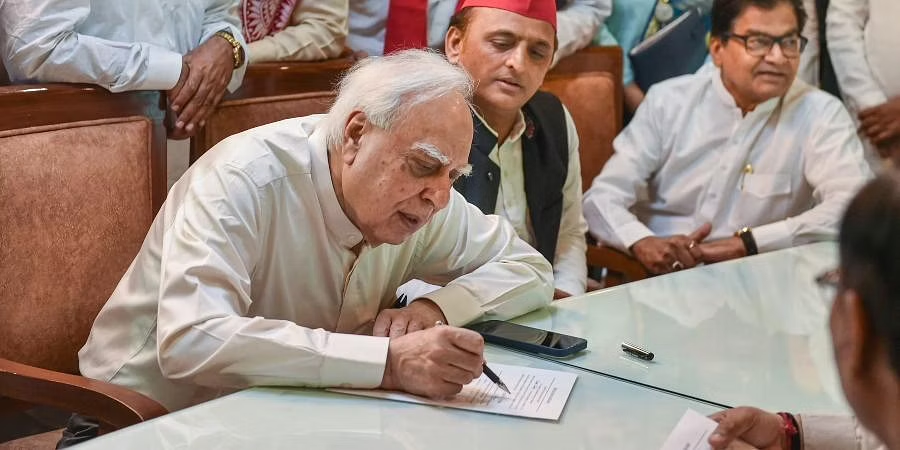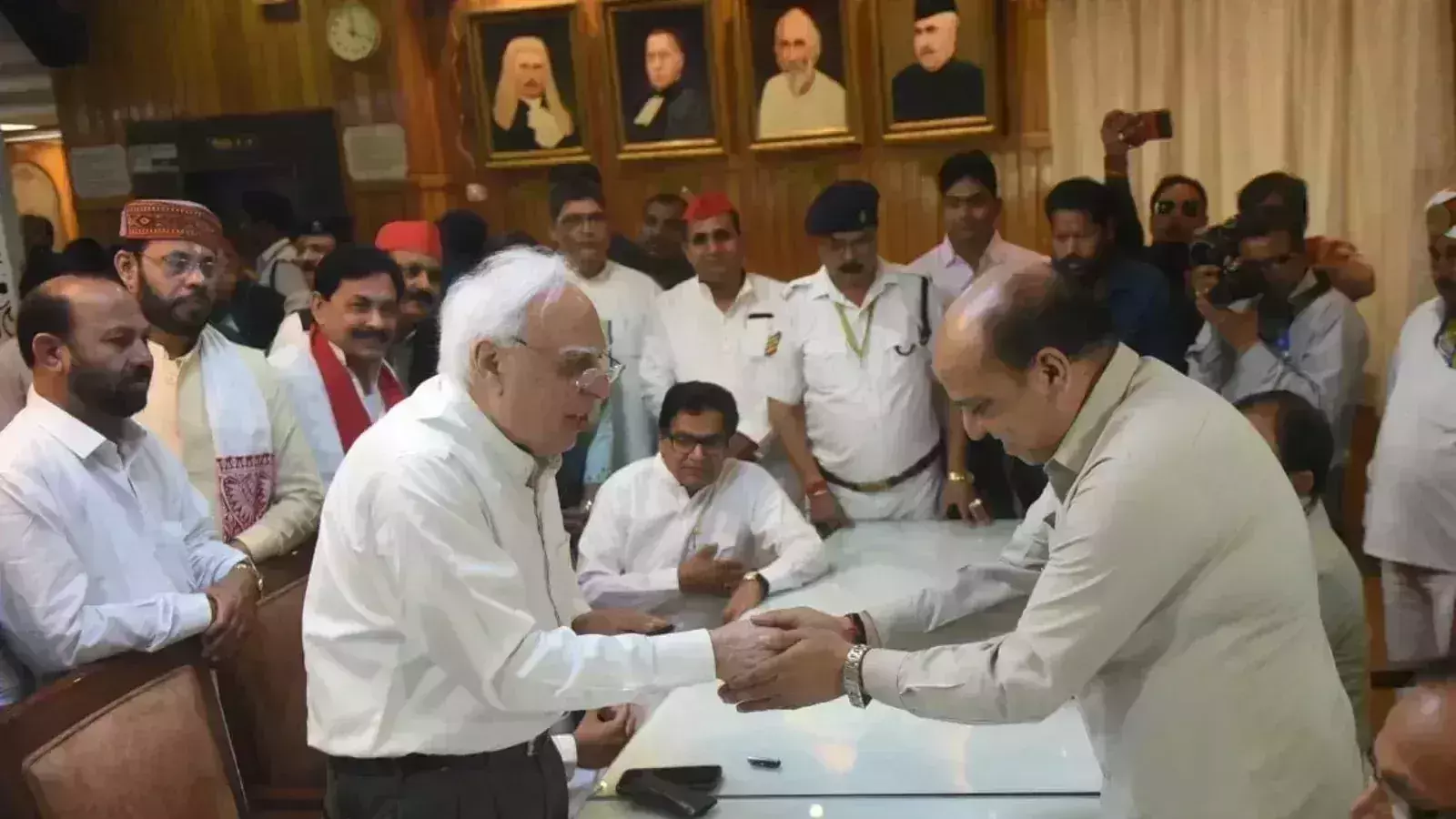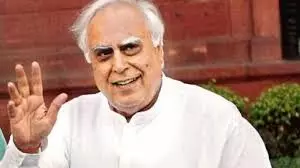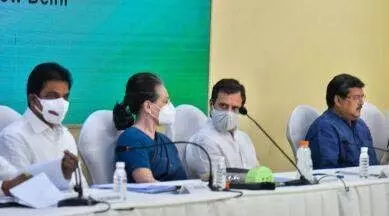
Kapil Sibal: deserting or jettisoned?
text_fieldsDespite the Congress getting emaciated after each election in terms of its representation in legislatures and its membership strength, thanks to its pan-India presence and the presence of a small bunch of leaders committed to the party's declared secular positions., it has been able to maintain the impression that the party's relevance is not totally lost. It was these leaders who undertook the unenviable task of defending the party in times when many of its vintage lot, who in its heydays had donned the positions of chief minister, state level presidents or central ministers, were waiting to jump the boat to the cosy comfort of enemy camps. One of such prominent party defenders, Kapil Sibal, has now quit the Congress. Sibal had become part of the G-23 ginger group - which had acquired the stigma of dissidents for having been totally critical of the dynastic leadership of the Congress and its unwillingness to learn from its mistakes. But no leader or followers, or even his adversaries, had imagined that one day he would break away from the Congress.
But the party leadership, the family residing in 10 Janpath Delhi to be exact, and their sycophantic coterie, did not see it as an imperative to make Kapil Sibal stay in the party. And that was the reason why he was kept out, a formal apology for an invite notwithstanding, from the three-day Chintan Shivir, held at Udaipur in mid-May for brainstorming on the ways and means of enabling a strong come back against the BJP in the 2024 general election. While the party showed the generosity of offering a place in the different panels to other 'dissident' leaders of the G23 gang, like Ghulam Nabi Azad, Anand Sharma, Manish Tiwari and Bhupinder Hoodah, that list did not include Sibal. The exclusion was evidence that not only the reproach he raised had disturbed the top echelons that much, but also that the leadership was not prepared to tolerate internal voices critical of it.
The desertion of the party by leaders is not anything new in the Congress; ever since the loss of power in 2014, that has become almost a routine affair. Sibal himself had explained, in an interview given a few months ago to a national newspaper and while dwelling on the the flaws of the party's strategy, the statistics that since Modi government took over in the Centre, 177 former MPs and MLAs who won on Congress tickets, and 222 of those who lost, had left the party. More than the strength of its opponents, it was the wrong decisions of the grand old party's national leadership, and the surfeit of misinforming advisors that made the Congress' defeat inevitable. The 'credit' of throwing away its majority in Madhya Pradesh, and the loss of its roots in the Punjab even with the favourable political climate gifted by the farmer agitation, also goes to them. The explanation proferred by apologists of the party is that Sibal left the party smelling that he would not get a berth again for the Rajya Sabha. They also argue that apart from scoring points in channel debates and arguing in the court, Sibal is incapable of winning even a seat in the metropolitan ward of his residence in Delhi. There may be some truth in it. But when the voice of the secular camp gets thinner, and when the Hindutva-inspired ruling clique does everything it can, using its brute majority, to subvert the legislative houses and even the very Constitution, it has been a fond wish of those from the ordinary member of Congress to every secular individual longing for the continued existence of the Cogress, that one like Sibal who can lend a firm, persuasive be present in the upper house as a voice to speak against that trend. What more, when the single-room houses and shops of Muslims in Jahangirpuri were crushed by bulldozers of racial hate, the Congress that stood silent and indifferent, was able to save its face only by claiming that Sibal was their man, for he had held the brief for the Jamiatul Ulama-e-Hind which waged the legal battle against the bulldozer-raj. This happened too recently to be forgotten.
Even in the wake of his departure from the Congress, its workers feel most relieved that Sibal was not prepared to come to terms with the communal parivar, despite the certainty that he would be welcomed by them with both hands, as many of his old colleagues were. It is a matter of no small joy for them that his voice will still be heard in the parliament, albeit with the support of Samajwadi Party. Their anxiety is whether the remaining leaders who do not compromise with Hindutva and refuse to embrace soft Hindutva, will also be alienated in similar fashion from the party by the High Command. That is a concern which the entire secular segment of the country shares to a greater or lesser degree.



























